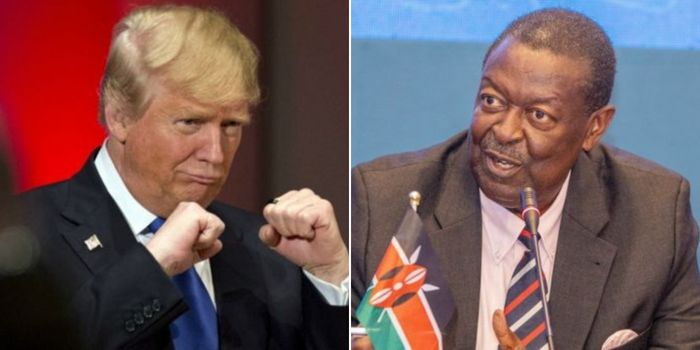The United States government has cancelled two multimillion-shilling contracts tied to Kenya, as part of a sweeping crackdown on what officials are calling “wasteful” federal spending.
The move is part of a broader cancellation of 401 contracts across various U.S. government agencies over the past two days, with a cumulative ceiling value of $2.1 billion (approximately Ksh 273 billion). The terminations are expected to save American taxpayers around $613 million (Ksh 79.7 billion).
Among the affected deals are two key contracts from the U.S. Treasury Department directly linked to Kenya. The first was a Ksh 35.9 million ($276,000) agreement for a “Kenya Program Coordinator,” while the second, valued at Ksh 29.6 million ($228,000), involved cruiser vehicles for Kenya, Uganda, Namibia and Tanzania.
“This is about accountability,” read a statement from the Department of Government Efficiency (DOGE), the agency spearheading the review. “We are evaluating every dollar spent to ensure it serves a clear, necessary purpose. Anything that doesn’t meet that threshold is off the table.”
DOGE was created under an executive order signed on January 20, 2025, as part of an intensified effort by the Trump administration to slash federal spending and modernize operations.
While the agency did not elaborate on how the cancellation of the Kenya-linked contracts would affect ongoing or future U.S.-funded programs in the region, the decision sends a strong message regarding Washington’s evolving fiscal priorities.
Also scrapped were contracts considered low-impact or symbolic, including Ksh 3.1 million ($24,000) for a two-day training on equal opportunity in employment under the Department of Homeland Security (DHS), Ksh 1.95 million ($15,000) for workplace advocacy support, and a whopping Ksh 767 million ($5.9 million) contract from the Department of Commerce for environmental consulting.
Experts say the cancellations are likely to ripple through diplomatic and development efforts abroad. “When U.S. funding for program coordination or mobility support is cut, especially in regions like East Africa, it can create gaps in implementation,” said Dr. Pamela Njoroge, a policy analyst based in Nairobi. “These are not just line items—they represent people, programs and long-term partnerships.”
As Washington trims its budget, the fate of some development initiatives remains uncertain—especially those relying on U.S. coordination roles or logistics support.
Still, the U.S. government maintains that the cuts are essential to reining in inefficiencies. “Every contract we cancel today opens the door for smarter, leaner investments tomorrow,” the DOGE statement concluded.
It remains to be seen whether this marks the beginning of a new era of austerity in U.S. foreign engagements—or just a temporary tightening of the belt.












